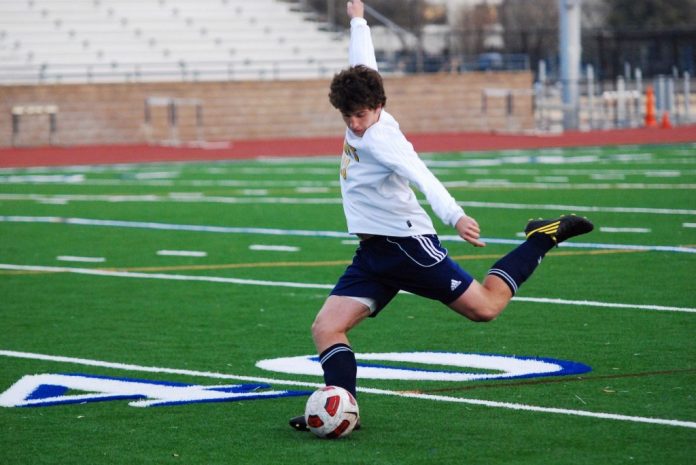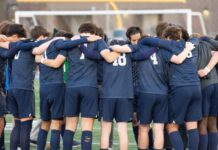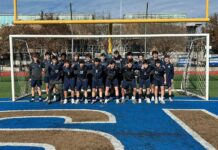Since the beginning of the school year, prospective soccer players have awoken every morning and walked out onto the pitch to partake in a rigorous game against one another. The tryout process that Coach Delong has introduced is unlike any other tryout process at Jesuit. Every day since the very first week of school back in August, the players were watched closely and judged according to the technique and skill level they displayed. Coach Delong, even after all his years coaching the Jesuit soccer team still finds that the hardest part of his job is the evaluation process, “The hardest part about having a semester long tryout is the bonds I make with the boys throughout the semester. And it breaks my heart to let go any player after spending all semester watching them grow not only as a player, but as a person. But in the end, you must face rejection. Soccer isn’t a sport where you can have a team of 30, you must make cuts in order to create the best possible team.”
While explaining the daily routine for tryouts, defender Tommy Flaim ’17 disclosed, “Usually we set up the goals and scrimmage for the entire time. We are just getting used to playing with each other”.
While this may sound like a fun and easy tryout process, it became tougher as the weather became colder and the level of intensity gradually increased. “It doesn’t take a lot for someone to wake up early and come scrimmage in the perfect weather we’ve had these past few weeks. But it does take a lot to get up early and play the game in freezing temperatures. When you’re running and sliding into people running full speed, it already hurts a lot; adding 20 degree weather into that equation is not a good picture,” said Flaim. However, head coach Charlie DeLong was able to achieve his one and only goal throughout the tryout process: to inspire his players to be the best that they could be.
Will Kennard ’17, a forward on the junior varsity squad, concurred that the semester-long tryout process arose out of a need to “learn how to play with each other before [DeLong] could assess our individual skill level. Soccer isn’t a sport that you can just throw together a bunch of players and give them a week to practice together before playing in a match. You must learn about your teammates and how they like to play, how they dribble, where they like to be passed to on an attack play, and most importantly how they respond to criticism.” He believed that, “No team has ever been great from the start; they worked hard in order to get what they wanted. And I think that if we continue to work hard then we can be unstoppable.”
Finally, on Friday, December 12, after months and months of practicing, the teams were posted on the wall outside the soccer locker room. “Even the best of players’ hearts sped up a little when they heard the teams were posted. You usually have an idea of who is going to make the teams and who isn’t, but you can’t help but get excited when you see your name on that list after playing your heart out for three months,” said Jonah Brunel ’17.
Mateo Means ’17, a midfielder on the junior varsity team, believes that the team “has greatly improved since the beginning of the year,” jokingly adding, “If we keep improving like this, Real Madrid better watch out!” He continued, “Tryouts were a great time to become acquainted with each other on and off the field. I’ve learned a lot about each player’s specific playing style and it became obvious to me that the longer we practiced together, the better we became. There were some early mornings and some sore afternoons, but in the end it was worth it to have a chance to represent my school in such a beautiful sport.”






